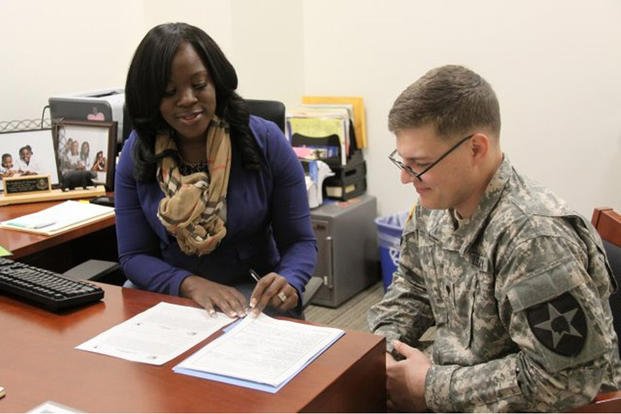JOINT BASE LEWIS-MCCHORD, Wash. -- Changes are coming to the Army Career and Alumni Program (ACAP) that will smooth soldiers' transitions back into civilian life -- and the concept that inspired them was born at Joint Base Lewis-McChord.
"[The program] really does highlight that the Army is all about people," Walter M. Herd, Army Career and Alumni Program director, said during a recent visit to Joint Base Lewis-McChord
(JBLM).
The mandatory program supports soldiers leaving the Army. Currently, a congressional mandate requires that they receive a pre-separation briefing no later than 90 days before leaving active duty, and complete 30-40 hours of ACAP training.
By next year, however, the process will begin at least 12-18 months before soldiers leave active duty. The program will also seek more buy-in from those in charge, who will ultimately be responsible for their soldiers completing the program's requirements.
"To do that, of course, we're going to arm the commanders," Herd said.
By extending the program's time frame, soldiers will be more able to take advantage of it without interfering with mission requirements. To keep up their end of the bargain, commanders will be provided with statistics, telling them how many of their soldiers participated, to what level and when they started.
All soldiers will also be required to have resumes before leaving active duty, regardless of their future plans.
The extended time frame, increased commander support and required resumes all came out of a plan developed at the ACAP center at JBLM -- and with good reason.
"A lot of people don't realize that the Army spends so much on unemployment," said Bill Bettyas, JBLM ACAP interim transition services manager.
The Army spent $500 million supporting former soldiers without jobs in 2010, according to Herd. That amount is expected to reach $700 million-$800 million this year.
Last spring, the ACAP counselors at JBLM asked themselves what their program would look like in a perfect world. What they came up with was a holistic approach to transition.
"We sat down and took a look at ourselves and we said, 'What do these kids need?'" Bettyas said.
They decided the two things they wanted more of were time and support. Soldiers ideally begin the process much sooner by meeting with counselors to help figure out what they want to do next. After that, they would be sorted into tracks according to what they wanted to do -- from reenlisting to starting a business. From there, counselors could guide soldiers to resources at the ACAP center and elsewhere on-base to help them achieve their goals.
Before the idea was even implemented at JBLM, key parts of it were picked up to be used on a national level. History has shown there's a strong correlation between time to complete the program, commander buy-in and success. The resume idea also came from the JBLM plan.
All the national changes should be implemented in time for ACAP's 20th birthday next year, officials said. The program will also be putting more briefs online so soldiers can complete them wherever they want.
In the end, Herd pointed out that every soldier starts and ends as a civilian, so it's best to be prepared for that change.
"Whether you're 25 or 65, everyone has a next chapter," Herd said.
Find the Right Veteran Job
Whether you want to polish your resume, find veteran job fairs in your area or connect with employers looking to hire veterans, Military.com can help. Subscribe to Military.com to have job postings, guides and advice, and more delivered directly to your inbox.











